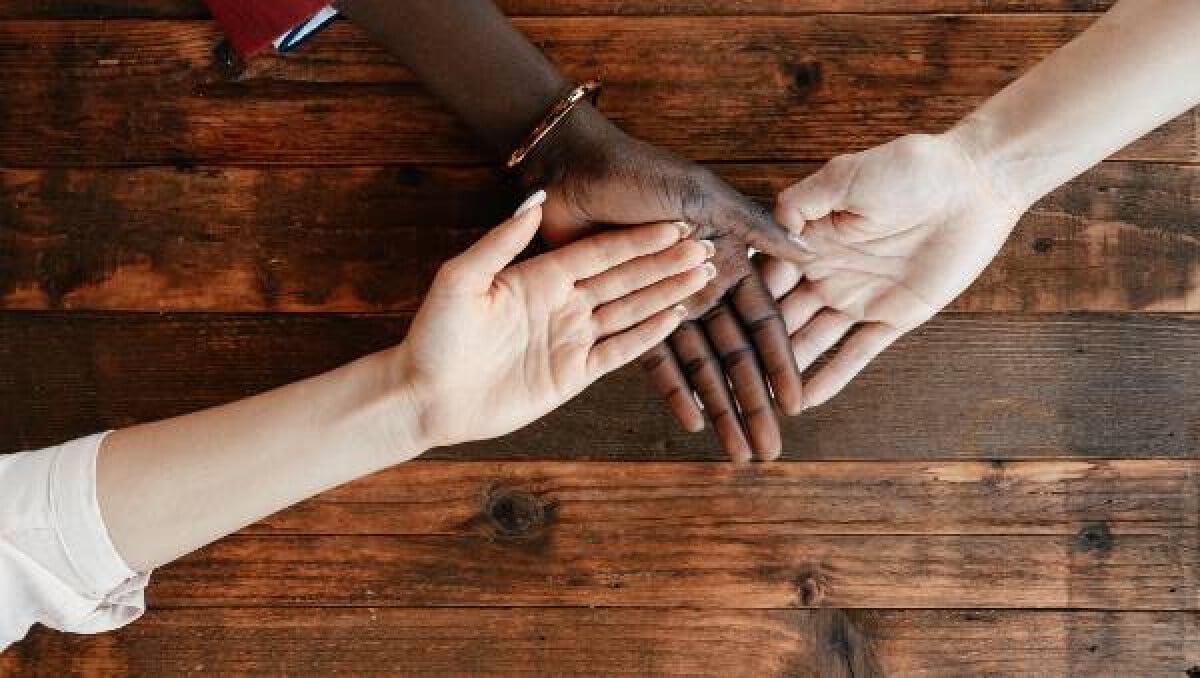How To Offer Condolences as a Group


Things to consider as a group when a colleague or friend is bereaved or passes.
The passing of a co-worker or loved one is a difficult life event. It can be hard to know how and when to provide condolences and support. It is a time of turmoil and raw emotion. Everybody deals with grief and loss in different ways, though we all have one thing in common. We need emotional, spiritual and practical support from those closest to us as we adjust to the loss.
Time here is not the healer, it is what happens during the time after loss. That huge hole left by the death must be part-filled by those closest to the person suffering the loss. Co-workers, friends, club members, church groups - anyone who played a role in the life of the deceased. ‘Being there’ for someone is an essential part of the healing process for everyone.
More support at a difficult time means more comfort. Help ease the pain with messages of support and sympathy from the whole team, church, community or friendship group.
Is ‘sorry for your loss’ enough?
It’s the stock statement many fall back on when someone has lost a person central to their life. It has value of course. The person grieving gets comfort from the act of acknowledgement. For many it may be that they're unsure how to convey their condolences. It also highlights the importance of context. Key being the nature of relationships and timing within the broader grieving process. Is there a rule-of-thumb? Those closest provide immediate and fundamental support. It's typical for the immediate family to be the first to rally round. Then those important in the deceased's life. From the places of work, hobbies, interests and community.
These relationships play a key role in ongoing support of the bereaved person. Insight into life outside the home provides immense help in the grieving process. Hearing the positive impact the deceased had on others is a source of great comfort. Offering the condolences of a group with an online card amplifies the 'feel-good' from knowing the good a person had on others. It confirms a life well-spent and helps in coming to terms with the loss to know it is a common loss.

Context comes into play here too. The nature of the person and passing will help shape the nature of the group’s condolences, messages of sympathy and support shared. It's more than appropriate to reflect a light-hearted, carefree, character in messages, recollections, and stories. Likewise, if the person was more serious and measured, this too will shape the nature of responses.
There are no rights and wrongs. Be true to a character and remember, it is support to those bereaved that is paramount. Meaningful, personal, messages will always be received with warmth. And it’s not stretching it to state the further from the time of passing the more personal, insightful and ‘celebratory’ messages can be. Word of advice though. Be careful not to confuse condolences with messages more suitable to a memorial. Sympathetic personal condolences concern what will be missed and why. Recalling events, stories and achievements aid the healing process further down the line.
"I had a client who experienced a personal loss in their family and Thankbox made it really easy to send a thoughtful/appropriate gift to them without knowing their address. This process was simple and the client appreciated it. Thanks, Thankbox!"
A customer review on Trustpilot ⭐⭐⭐⭐⭐
When to offer condolences?
Timing of condolences is as important as their nature. Again, it’s contextual to the nature of the passing. Grief manifests itself in many ways, and it’s different for everyone. Useful is the framework for understanding the passage of grief and how we relate and react to it. The Five Stages of Grief, developed by psychologist Elisabeth Kübler-Ross in the late ‘60s. It was developed to aid people with a terminal illness facing their own death. It gained a broader application to describe grief and loss in more general terms. The five stages are:
Denial
Anger
Bargaining
Depression
Acceptance
It’s important to note that the five stages correspond to time - denial being in the very early stages. Also it’s a framework. It is not not a linear step process. People will return to stages as they progress and can experience them in any order. It has value to understand when the group’s condolences are best suited to share. In terms of personal grief management other models relating to 'continuing bonds' and living with loss may be more relevant. Remember, for the group, context is always king.
Helping each other helps
Offering condolences as an individual is a personal decision. The nature of the relationship will determine what to say, how and when. As a group it can be a little trickier. An aspect often overlooked is managing the process for the group. The person closest to the bereaved is not always best-placed to organise the group’s support. A common-sense idea is for someone to lead the process in organising the group condolences card and collection (if appropriate). A virtual card needless to say makes this a much, much easier task. Location is irrelevant - everyone can share their thoughts from anywhere in the world, in turn providing more comprehensive support and comfort.

Recap. The best way to share condolences as a group.
It’s a constant drum banged throughout - context is king. It’s so important, it determines the nature, timing and method of the group’s offering of condolences.
It’s human to help and support others in times of need. Work colleagues, close friends, members of an interest or church group, or any group important in the life of the deceased play a key role.
The expression of personal, sincere condolences from a group provides a lasting source of comfort to those bereaved.
Find out more about the Five Stages of Grief
Great organisations providing bereavement support - in the UK or the USA
More support at a difficult time means more comfort. Help ease the pain with messages of support and sympathy from the whole team, church, community or friendship group.
With a Thankbox you support the planet too...
We believe more openness on issues surrounding death and bereavement is a positive and affirmative action. Every Thankbox also delivers a small piece of positivity to planet Earth too...
🌲 We plant a tree for every 10 Thankboxes sold
🔋 100% of our electricity consumption is 100% green generated
💻 As a modern, distributed organisation we've no wasteful offices, travel or infrastructure
😊 No card, no paper, no delivery miles, no waste with virtual cards
🌟 We're rated 4.9/5.0 on Capterra and 97% ⭐⭐⭐⭐⭐on Trustpilot
Photos by Kampus Production and Hakan Erenler from Pexels





